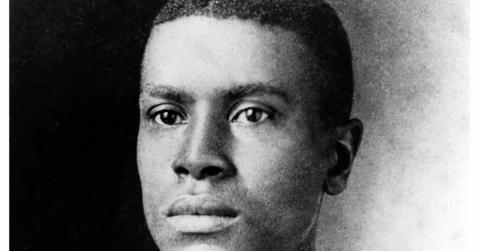
10 Groundbreaking Black Movies Everyone Should Watch
Discover the groundbreaking black movies that revolutionized film, from 'Within Our Gates' to 'Moonlight.' Explore their cultural impact with us.
By Micah DecuireFeb. 9 2024, Published 8:11 p.m. ET
Does art influence life or does life influence art? It is a hypothetical question to some and a burning question that must be answered for others. The truth is there is no right or wrong answer and those who follow their inspiration to make movies know their own truth. The stories they have to tell are their own and those who love their work get it!
When you think about the cultural impact that film has on your perception of the world, you see movie plots, roles, and themes differently. Major movers like Spike Lee, Sidney Portier, Kasi Lemmons, and more have taken on the privilege of giving black culture shape, a story, and a point of view through film.
There are a few groundbreaking black movies everyone should watch that will alter and elevate the audience’s understanding of black lives and culture. Gather your friends and family, grab some popcorn, and feast your hearts and minds on these powerful Black films.
1. ‘Within Our Gates’ (1920)
Within Our Gates broke barriers as one of cinema's earliest films directed by an African American. Oscar Micheaux courageously tackled complex issues of racism and lynching head on in 1920, confronting vicious stereotypes and violence faced by Black Americans.
Made for African American audiences, Within Our Gates was groundbreaking in portraying complex Black characters amidst an emerging film industry.
2. ‘ Imitation of Life’ (1934)
Imitation of Life was a landmark 1934 film that catapulted the lives of African Americans into the major Hollywood spotlight for the first time. With prominent Black actress, Louise Beavers, in a leading role, the film captured Black women’s experiences with rare prominence and empathy.
It is a powerful film filled with emotion and power. It speaks to the Black story that needs to be told and the shared culture and history that cannot be forgotten.
3. ‘Carmen Jones’ (1954)
Carmen Jones broke barriers as cinema’s first all-Black musical film. With a powerhouse cast led by Dorothy Dandridge and Harry Belafonte, it offered a bold, contemporary reimagining of the classic opera with African American style, language, music, and themes.
Carmen Jones brought talented Black performers into well-developed lead roles in a major Hollywood production for the first time.
4. ‘The Defiant Ones’ (1958)
Sidney Poitier shattered stereotypes in The Defiant Ones as one half of a pair of escaped prisoners, tackling racism and portraying a Black character with complexity and heroism.
The film confronted themes of racial prejudice with an unflinching lens while spotlighting Poitier’s talents for later triumphs.
5. ‘A Raisin in the Sun’ (1961)
A Raisin in the Sun was the first feature film adapted from a play centered on African American experiences. The acclaimed cast and director brought Lorraine Hansberry’s barrier-breaking play to wider audiences in 1961, expanding the representation of complex middle-class Black characters.
This ground-breaking film is still embraced and loved by Black families across the country and is one that is always worth a first, fifth, or even 10th time!
6. ‘Sounder’ (1972)
Sounder marked a major milestone as the first Hollywood studio film to portray African American families and lives in a positive light. Its success resoundingly disproved outdated industry arguments against films showcasing Black humanity.
As a triumph for the Black community, it is a film that continues to be enjoyed and talked about, even now over five decades later.
7. ‘She’s Gotta Have It’ (1986)
She's Gotta Have It established Spike Lee as a groundbreaking director, tackling contemporary African American experiences with his gripping 1986 debut.
Exploring a young, educated Black woman unapologetically owning her sexuality, the micro-budget Indie film resonated as a taboo-breaking portrait of modern Black femininity. In 2017 the film was readapted into a Netflix series spanning two seasons.
8. ‘Boyz n the Hood’ (1991)
John Singleton's seminal 1991 drama Boyz n the Hood thrust the lived realities of South Central Los Angeles' Black youth into the mainstream conversation with striking empathy and urgency.
Detailing the coming-of-age struggles with violence and complex masculinity of three friends, the film heralded Singleton as the first Black filmmaker nominated for Best Director at the Oscars.
9. ‘ Eve’s Bayou’ (1997)
Eve's Bayou marked writer/director Kasi Lemmons’ stunning 1997 debut as the first African American woman to have a film achieve wide independent theatrical release. Its critical acclaim and popularity opened doors for future Black women filmmakers.
With a predominantly Black cast and crew, Eve’s Bayou challenged stereotypes by presenting multifaceted middle-class Black characters facing universal family drama.
10. ‘Moonlight’ (2016)
Moonlight uniquely illuminated seldom-seen perspectives in its portrait of a Black gay man struggling with identity across three periods of life. Director Barry Jenkins’ intimate, poetic depiction marked the first LGBTQ-focused film with an all-black cast.
After its 2016 critical and commercial breakthrough, including a Best Picture Oscar win, Moonlight profoundly expanded diversity in storytelling by proving mainstream appeal in compassionately rendered Black queer experiences. Its milestone triumph advanced inclusion in Hollywood.
Power and Message- The Importance of Black Films
As noted by the experts at PBS.org, Black film has always been vital to the community and culture: "You've got to remember it was incredible that African-Americans saw themselves on the screen. Usually, most portrayals of African Americans in the larger white culture were meant to be very derogatory. So by reclaiming that space in the culture you could show positive images of black people outside of the white context."
Now more than ever, Black films and Black filmmakers are playing a vital role in the advancement, as well as the preservation of Black culture. Make sure you do your part as well and support the Black film industry!

